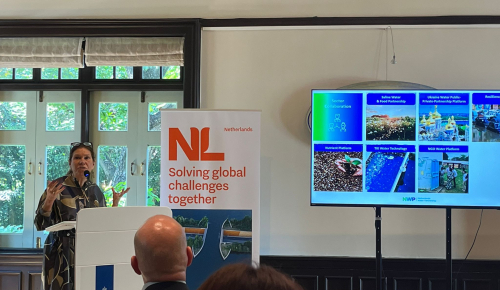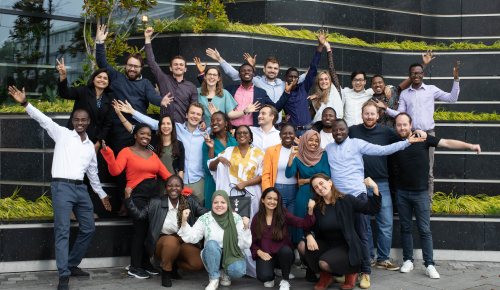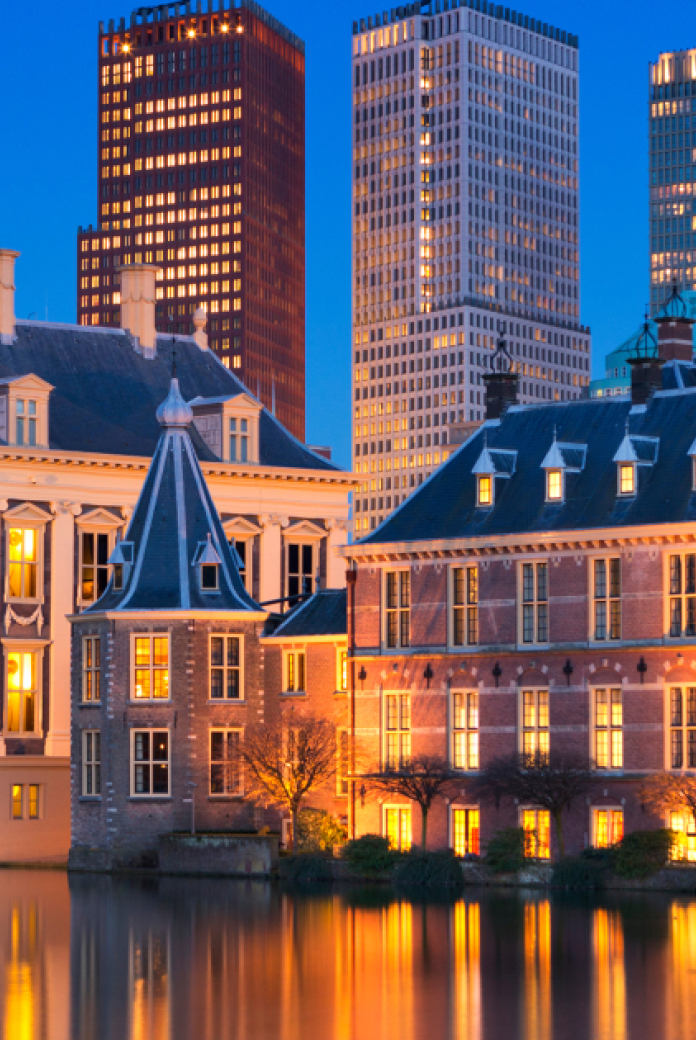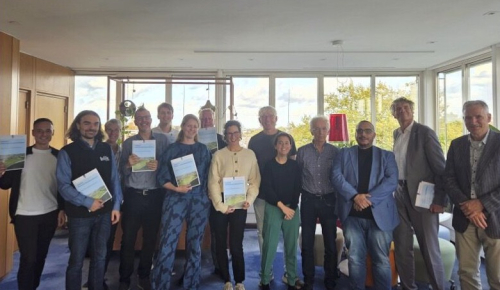Impact story
14 July 2025Strengthening global competitiveness: Key insights from the Dutch water sector
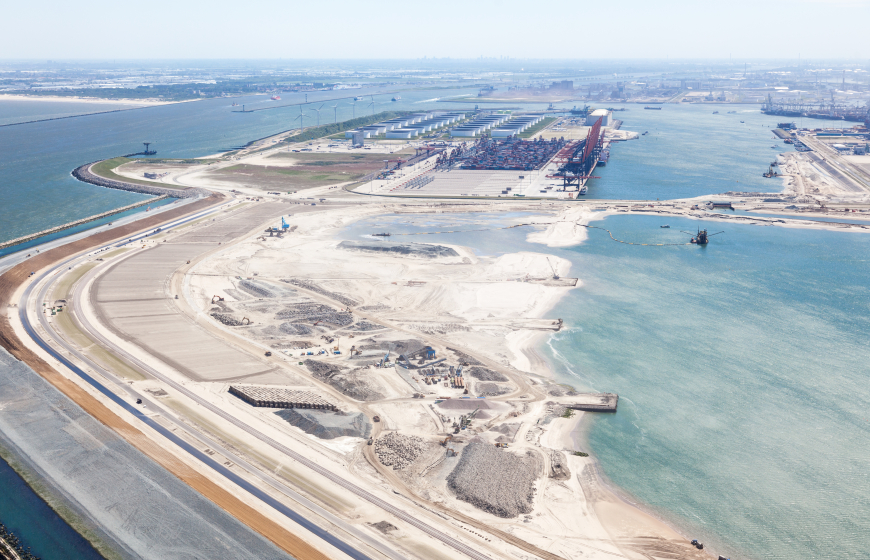

To track the status of exports in the Dutch water sector, the Panteia research institute has created a dedicated index: the Water Sector Export Index (WEX). This annual benchmark, based on survey responses from around 70 Dutch companies ranging from SMEs to multinationals, provides data on export value, geographic reach, and thematic focus areas. However, the WEX does not capture the full economic relevance of water, particularly its indirect impact on other sectors. Water can play an enabling or disabling role in energy provision, food security, public health, and overall resilience – factors that are often underrepresented in export statistics. To address this gap, 11 in-depth interviews with key sector players, complemented by a focused private sector consultation, has been added to the 2024 WEX data. These qualitative insights reveal the underlying dynamics behind the numbers, clarify the international earning potential of cross-sector water solutions, and give a critical context for decision-making and policy development.
Going beyond the numbers
The 11 in-depth interviews were conducted with leading companies representing various water subsectors in the first half of 2025. These conversations revolved around international positioning, growth opportunities, and factors influencing global competitiveness. All the companies selected derive at least 50 percent of their turnover from international activities, with several firms indicating that they are close to being completely reliant on international markets.
The focused consultation was held with eight private sector organisations operating internationally. The selection of companies drew on the networks of Netherlands Water Partnership and Water Alliance, ensuring a well-distributed representation across subsectors, company size, and geographic export footprint.
International markets: mature and growing
The Dutch water sector primarily exports to mature markets, high-income and upper-middle income countries, a trend consistently confirmed by annual WEX reports. This focus is logical as these countries have both the financial capacity and policy alignment to invest in sustainable, responsible water solutions. Notably, markets such as Saudi Arabia have recently opened up and are actively seeking foreign expertise and investment.
Success in established markets does not eliminate the need for continued government and institutional support. Water diplomacy, Dutch branding in international market access, and active lobbying remain key to maintaining and expanding the sector’s global presence.
Top current export markets include the United States, Germany, Belgium, the United Kingdom, and France, with Saudi Arabia and India now seen as strategic priority markets.
Growth markets are closely tied to national economic development. In high-income countries, growth often stems from expanding or upgrading existing infrastructure, creating demand for resilience, risk management, and climate adaptation. In upper-middle income countries, growth is typically driven by new projects, often linked to regulatory shifts (e.g. water utility privatisation in Brazil) or severe climate stress (e.g. water scarcity in Mexico).
Key growth markets in high-income countries: Germany, France, UK, Saudi Arabia
Key growth markets in upper-middle income countries: Mexico, Brazil, Ukraine
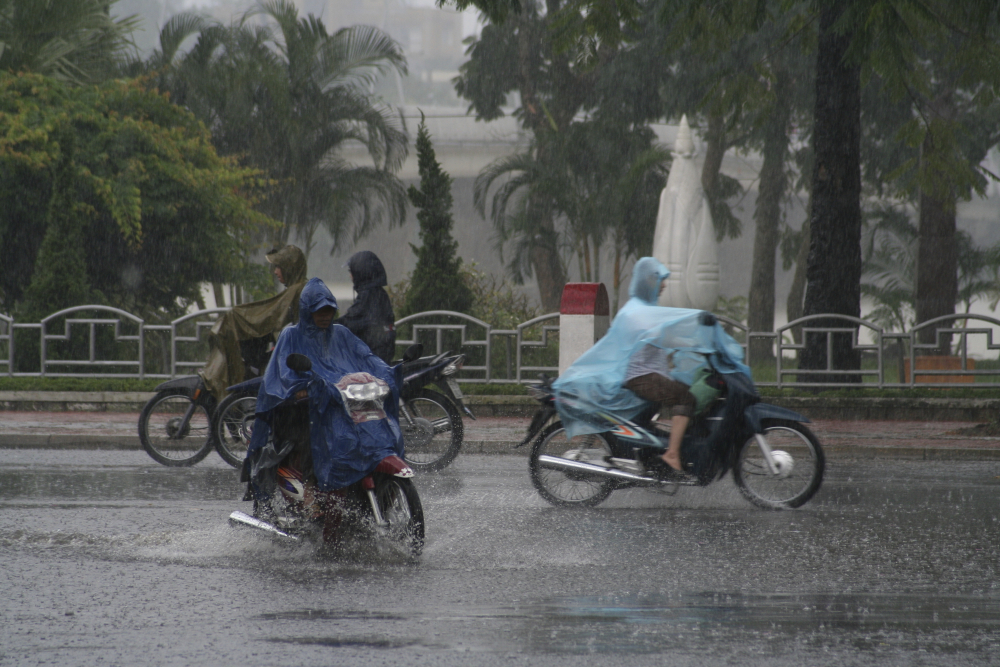
Key themes and market developments
Climate change remains a dominant theme in shaping the global water sector. While it presents serious challenges, it also creates opportunities for sustainable innovation. In interviews and the WEX 2024 report, companies identified several major trends likely to influence water-related markets in the coming years.
The most frequently mentioned themes include:
- climate change, especially the need for adaptation and mitigation
- Nature-based Solutions (NbS)
- the global energy transition
- water security and resilience
Climate change is considered the most critical external driver that directly affects water quantity and quality. Extreme weather events, both droughts and intense rainfall, are prompting new approaches to spatial planning and infrastructure. This sense of urgency is accelerating both public policy and private innovation.
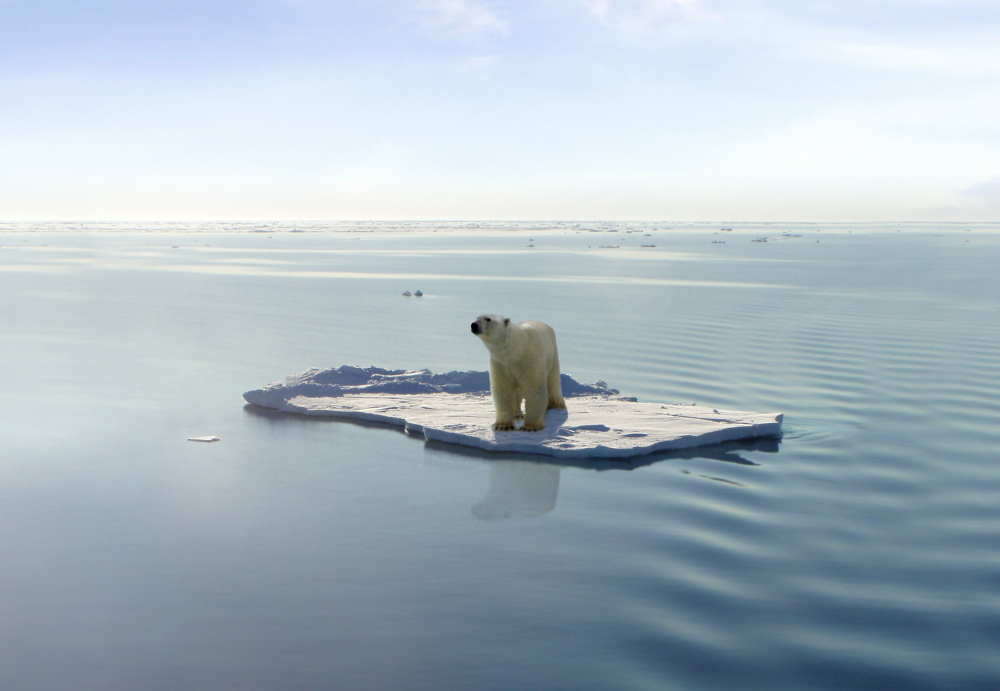
“For us, sustainability and environmental, social and governance ESG are central to everything we do. After all, if climate change is the shark, water is the teeth. It’s where the real impact is felt. Without reliable access to water, assets lose their value.’’
Adri Pols
Chief Executive Officer at Desolenator
Security is another growing concern. Beyond physical water safety, digital technologies like AI are playing an increasing role in protecting critical infrastructure, from coastal defences to cyber resilience.
The energy transition is broadly seen as beneficial for the water sector, with large-scale developments in offshore energy and hydrogen projects opening up new markets. The political and financial weight behind energy independence makes water-related solutions in this space commercially attractive.
In summary, the most significant societal forces shaping the sector are the urgent need for climate adaptation and the global shift in energy systems, both of which require smart, integrated water solutions.
Cross-sector focus areas
Water is increasingly recognised for its enabling or, conversely, disabling role in other sectors. Sound water management, in terms of both quality and quantity, directly affects energy provision, food security, public health, and overall resilience. To better reflect its relevance, several cross-sector connections with clear international earning potential have been identified.
Key focus areas include water and energy, food, the built environment, resilient infrastructure, industry, IT/data, and, increasingly, mining, especially in relation to critical raw materials. These links offer significant growth opportunities, particularly where Dutch expertise in integrated solutions can be scaled or replicated internationally.
The connection between water and food, or agriculture, is well established, and the Netherlands holds a strong global position in this sector. A strategic large-scale focus on sub-themes within this nexus, such as smart irrigation, freshwater storage, the use of remote sensing in agriculture, saline agriculture, and innovative approaches to water scarcity, can deliver tangible results. A cluster-based strategy is recommended to maximise impact and international competitiveness.
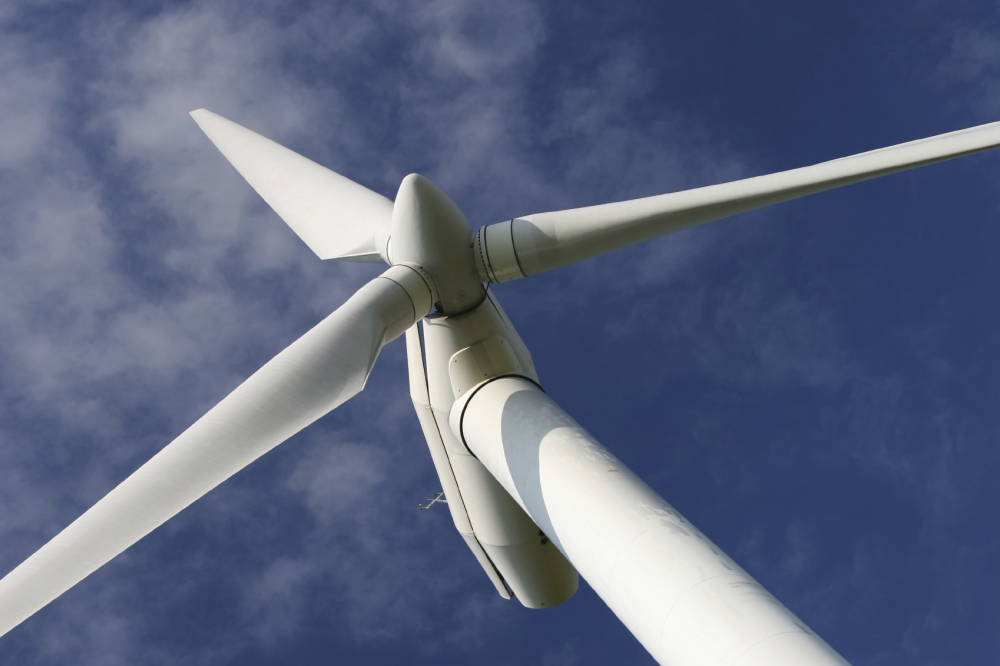
Recognising water as a critical enabler across sectors strengthens its position in global markets and supports the Netherlands’ strategic ambition to remain a leader in sustainable water innovation.
Urban water management also presents major opportunities. As cities continue to grow, challenges such as heat stress and urban flooding call for integrated, climate-adaptive design approaches. With the right expertise and positioning, the Dutch water sector can offer unique added value, not just in domestic contexts, but also through scalable and replicable solutions abroad.
Finally, the role of water in the data and IT domain is repeatedly highlighted. While data applications are numerous and diverse, there is a clear need for a more coordinated approach. The aim is to offer data as part of a total solution developed by a coalition of IT developers, urban planners, technology providers and engineers, tailored to specific challenges in a given focus country. This collaborative model offers real potential for scaling up.
In summary, cross-sector strategies involving water and energy, food, data/IT, and even mining represent key areas of opportunity. Fully leveraging water's enabling function across these domains is essential in strengthening the Netherlands' international position in the years ahead.
Strengthening the international competitiveness
To effectively enhance the international earning capacity of the Dutch water sector, several factors have been identified by WEX participants, interviewees and stakeholders. These reflect both strengths that must be maintained and areas requiring improvement or renewed attention in future policy.
A core issue raised is the need for stronger collaboration abroad, particularly through integrated, consortium-based approaches. While the Dutch delta philosophy is rooted in total solutions, this is not yet reflected in international market strategies. A joint approach, sharing risks, setting priorities and aligning timelines, is seen as essential for gaining ground in complex foreign markets.
The Dutch diplomatic network is highly valued. Embassies, consulates and Netherlands Business Support Offices play a crucial role in opening new markets, resolving disputes, and promoting the Dutch water brand. There is growing support for placing more water experts at these posts or for expanding existing models such as the Dutch Risk Reduction & Surge programme, the Oman Water Taskforce and the Ukraine Platforms. These examples show the potential of structured knowledge deployment in strengthening bilateral cooperation and project development.
At the same time, stakeholders emphasise the importance of continuing what already works. There is much appreciation for international visibility and key programmes that have a demonstrated impact. Attendance at major international water events, such as Aquatech, the UN Water Conference, IFAT Munich, Stockholm Water Week, the World Water Forum and COP summits, is seen as essential. These platforms showcase the Dutch integrated approach and demonstrate a unified, high-quality presence. Incoming delegations are also highlighted as highly effective. Activities like incoming and outgoing missions, water learning weeks and delegation hosting around Aquatech are described as ‘short routes to success’.
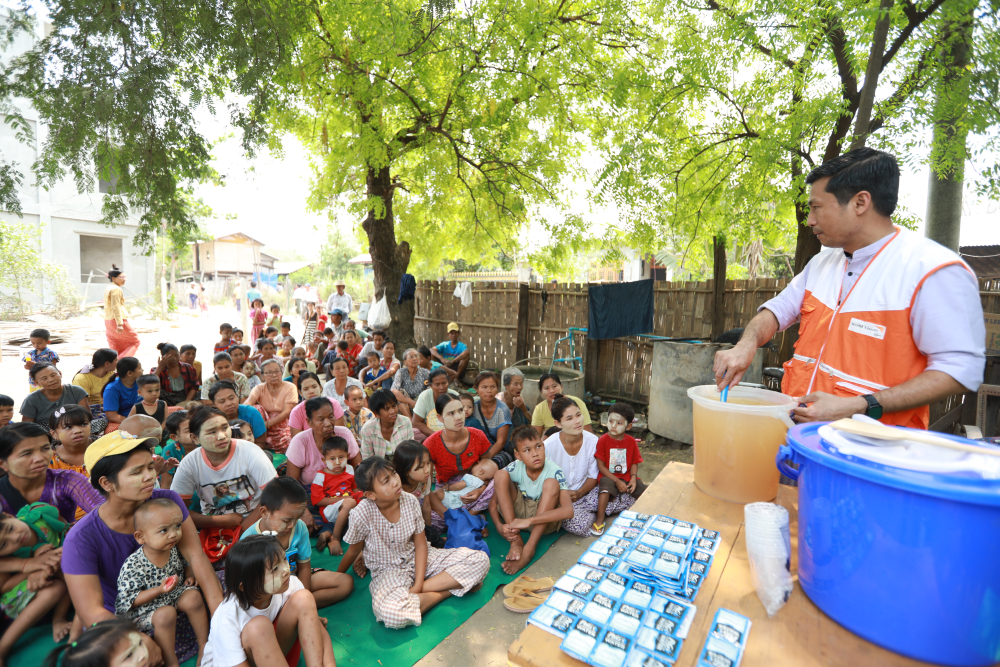
“If we want to strengthen the international competitiveness of the Dutch water sector, acting as a launching pad for new technologies is key. We’re strongest when we approach foreign markets together, and the embassy network is a huge asset, especially for young companies like NX Filtration. It’s also encouraging to see the Dutch water tech cluster becoming more united. Events like Aquatech show that when we present ourselves as one, we send a powerful message to the world.
Incoming delegations are also incredibly important to us. We have a high-end production facility and when visitors come to see it in person, we’re already a step ahead because their visits often lead to concrete results quite quickly. For us, it’s a short route to success."Michiel Staatsen
Chief Commercial Officer at NX Filtration
Reputation management remains a cornerstone. The Netherlands is internationally known for its Delta Works and flood management, but there is a growing need to present a broader vision, highlighting strengths in water quality, digital innovation and integrated solutions. A consistent request is for the Dutch Government to act as a ‘launching customer’ more often, to lead by example and demonstrate commitment to innovation, for instance in areas such as PFAS removal.
Access to finance is a recurring concern. Many SMEs find the current Dutch funding instruments too slow, complex and burdensome. The compliance requirements can be a barrier, particularly when developing business cases at an early stage. Simplifying access and adapting financing to SME scale is needed to unlock their international potential.
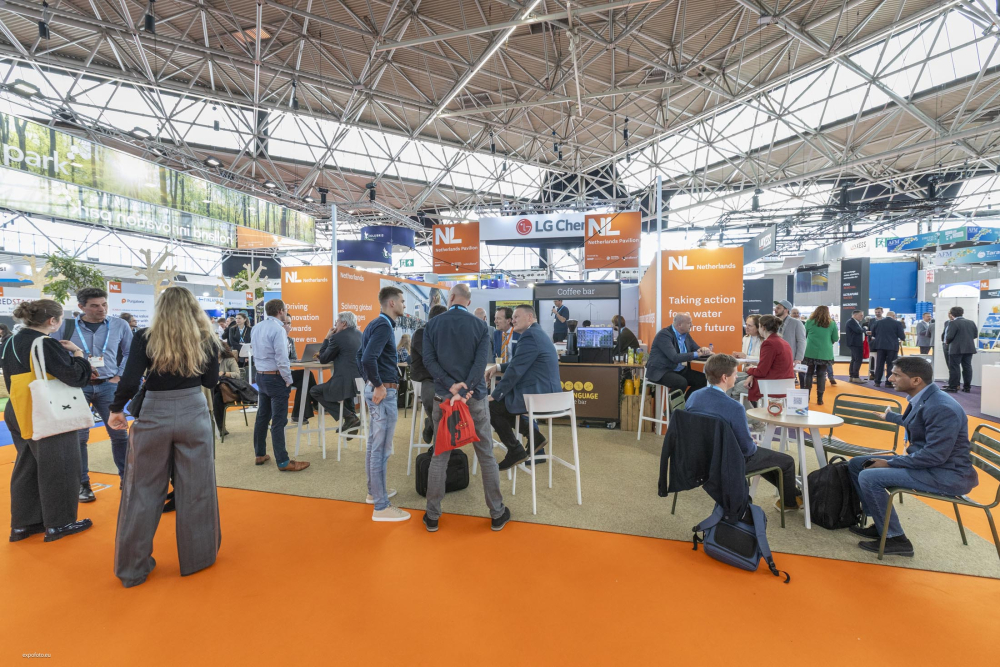
"A strong yet accessible financial instrument framework is essential for supporting Dutch export growth. In the past, some instruments were simply too complex or restrictive to gain traction, but we’ve seen real improvements in recent years. As a company, we value the relationship with potential financiers like Invest International. Mutual understanding is now growing with both sides learning what the other – entrepreneur or financier – can bring to the table."
Lisa Brand
Co-Founder and Chief Technology Officer at LG Sonic
Larger funding needs often push companies towards EU financing instruments. Brussels is seen as attractive due to longer project timelines and more stable policies, yet access remains difficult. The EU is often described as hard to navigate. There is a clear call for a collective approach, possibly including greater engagement with the Dutch Embassy in Brussels or a dedicated sector lobbyist, to make better use of European opportunities and improve benchmarking with other countries.
The need for consistent international profiling is also underlined. Dutch companies need a strategic focus on key markets, with long-term policy backing and regulatory clarity. SMEs in particular lack the capacity to engage everywhere and benefit from targeted support in priority countries and themes.
Water is seen as a powerful diplomatic tool. Its universal relevance, whether addressing drought, floods or scarcity, makes it a strong entry point for bilateral cooperation. Offering expertise and support on complex water issues fosters goodwill, strengthening the Dutch position not just in water, but in related sectors as well.
Human capital is seen as a critical challenge. There is a persistent shortage of skilled technical professionals across all educational levels, compounded by rising wage costs. In some cases, this is leading to outsourcing production, which raises wider questions about the investment climate in the Netherlands.
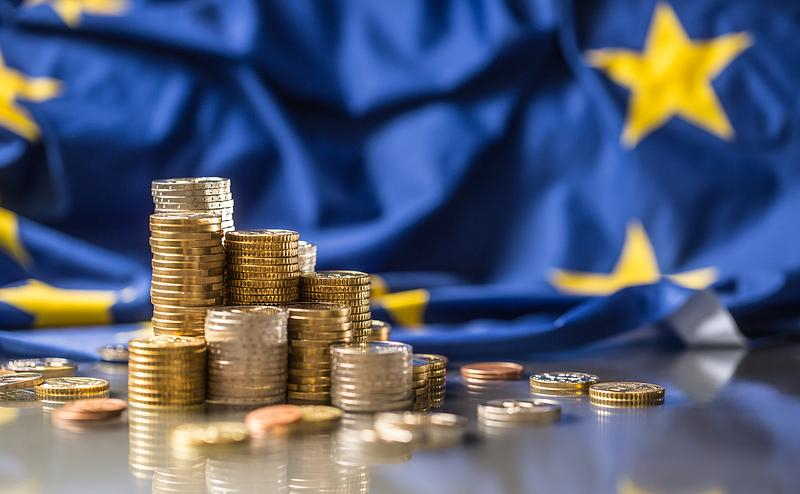
"We’ve doubled our turnover in the past five years, and while a further 50 to 75 percent growth over the next five years is certainly achievable, it’s not necessarily our goal. "New markets are out there, no doubt, but the real challenge lies in keeping up operationally. Growth requires significant investment, especially in automation and streamlining internal processes."
Rutger van Goethem
Sales Director at Royal Eijkelkamp
Finally, developing integrated solutions tailored to specific local or regional problems through joint initiatives involving government, business and knowledge institutions, is considered key. These holistic approaches reflect the Dutch strength in connecting sectors and disciplines, and should form the basis of future international positioning.
In short, the Netherlands needs to continue to invest in effective diplomatic instruments, integrated international cooperation, a strong presence at key global events, and targeted financial and reputational support, if it is to maintain and expand its global water leadership position.
Featured NWP members: Arcadis, Acacia Water, Colubris, Deltares, Desolenator, Hydraloop, LG Sonic, Nelen & Schuurmans, NX Filtration, Royal Eijkelkamp


